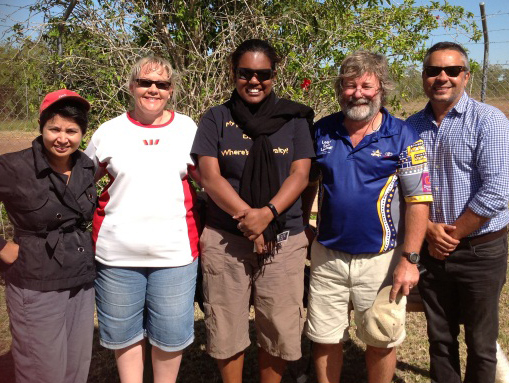Westpac Partnership to help Indigenous Artists Break Welfare Cycle
May 24, 2015
The Copyright Agency and Westpac recently joined forces to build financial literacy within Aboriginal communities in Queensland.
Copyright Agency’s Indigenous Engagement Manager, Trish Adjei together with Bruce McQualter and Michelle Bentley from Westpac held a workshop with around 15 Aboriginal artists on Mornington Island, a small community with a population of around 1000, most of whom are Indigenous.
Since Mornington Island is expensive to travel to, tourism is low and support services and infrastructure are rudimentary. While there is a history of welfare dependency, recent improvements to internet connectivity has stimulated interest in online art sales, which has started to provide a new independent income stream for some of the island’s art community.
Westpac and Copyright Agency | Viscopy developed a tailored workshop to inform artists and members of the Mirndiyan Gununa Aboriginal Corporation about the Resale Royalty Scheme, licensing their artwork and the payments they can receive from copyright royalties. This led into a session from Westpac about how they can manage their income with information from their Financial First Steps program, which covered topics like making and keeping a budget, tracking bills and managing their superannuation.
The Copyright Agency’s Indigenous Engagement Manager, Trish Adjei, said “Most of the workshop participants were older women who have been practising artists for a long time, many had worked alongside the late artist Mrs Gabori. They were really interested to hear all the information which helped them to better understand licensing and resale royalties.”
“This trip enabled us to reach a growing but isolated arts community and provide them with access to education materials and support on how they can earn money from their artwork, and break ongoing cycles of welfare dependency,” she said.
“This trip was also a really important demonstration of ours and Westpac’s commitment to fulfilling our respective Reconciliation Action Plans,” she said.
The program was so successful there are talks of continuing the initiative to more remote arts communities in 2016.


